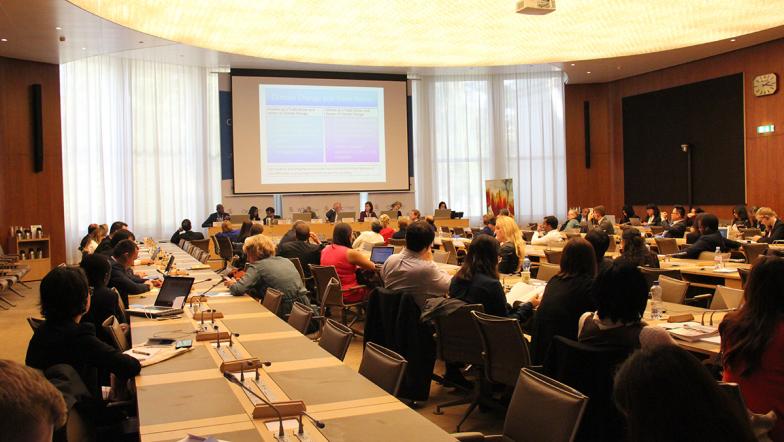Public Forum showcases WTO Chairs Programme case studies

Four members of the WTO’s Chairs Programme presented cases studies on how trade could be a catalyst for growth and poverty alleviation at an event on 27 September during the WTO Public Forum. The session was moderated by Robert Koopman, WTO Chief Economist.
The chairs discussed how to make trade work for more people and how to address the challenges trade can generate. Their case studies provided a platform for discussion on how trade and the WTO can contribute to attaining the Sustainable Development Goals, how the benefits of trade can be shared more widely among countries, businesses and individuals and how best to tackle the challenges of the changing trade landscape.
The case studies highlighted relevant analyses and presented new perspectives to policy makers and other stakeholders. Specific emphasis was placed on the need for trade policy to be inclusive and how to mainstream trade into national development strategies. The session provided participants with a better understanding of the mechanisms to ensure that international trade contributes to growth and ultimately reduces poverty and income inequality.
Keith Nurse of the University of the West Indies explored the implications of climate change for the travel and tourism sector in small island states and the Caribbean. Riza Noer Arfani and Maharani Hapsari of Universitas Gadjah Mada examined the constraints faced by small and medium-sized enterprises (SMEs) in Yogyakarta, Indonesia, and how government can address these structural constraints to strengthen the integration of these small local producers into the global economy.
Taleb Awad-Warrad of the University of Jordan investigated the impact of trade openness and growth on employment in selected Arab countries, which is becoming an important concern in light of growing unemployment among young and educated workers in many Arab countries. Carli Bezuidenhout and Marianne Matthee of North-West University and Neil Rankin of Stellenbosch University examined the issue of wage inequality within exporting companies and probed possible sources of this inequality by analysing firm characteristics, types of product exported and types of destination served.




